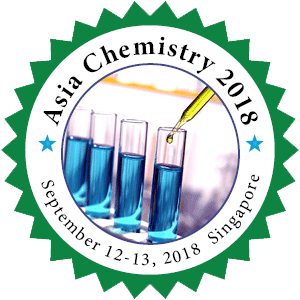
Keiichi Kaneto
Osaka Institute of Technology, Japan
Title: High power lemon Juice biofuel cells using conducting Polymer catalyst
Biography
Biography: Keiichi Kaneto
Abstract
Biofuel cells, which generate electric power from biomaterials such as glucose, alcohol, organic acids, are interested as a potential candidate for sustainable energy sources. The key material for biofuel cells is catalyst, which enhances chemical reaction and conversion efficiency to electric power. However, expensive rare metals like Pt are commonly used for the catalyst. We have been studying biofuel cells to explore the possibility to replace rare metals with functional materials. It was found that conducting polymers exhibited excellent performance as the anode catalyst.
In this talk, fabrication of biofuel cells, measurement and characterization of the electrical output using conducting polymer, poly(3,4-ethylenedioxythiophene) polystyrene sulfonate (PEDOT*PSS) as the anode catalyst are presented. The biofuels were ascorbic acid (AsA; known as vitamin C), citric acid (CitA), and lemon juice. The output powers based on these biofuels were compared.
The cells consisted of biofuel/current collector/PEDOT*PSS /Nafion® (N117)/Pt-B (black) cathode catalyst/current collector/air. For the current collector a low resistance CuNi-coated polymer cloth was used. The cell was a direct and passive type. Figure 1 shows cell performances of electromotive force (E0), maximum power (Pmax) and cell voltage (Emax) at the power maximum. The highest performance was obtained in the lemon juice cell having the Pmax about 4 mW/cm2 using PEDOT*PSS anode catalyst. Taking the fact that lemon juice contains approximately 0.03 M AsA and 0.3 M CitA, the Pmax of lemon juice cell is consistent with the sum of them. It is also noted that the cell performances of PEDOT*PSS was better than that of Pt-B for anode catalysts and 0.5 M AsA. The mechanism of high power CuNi/PEDOT*PSS anode cell will be discussed.

